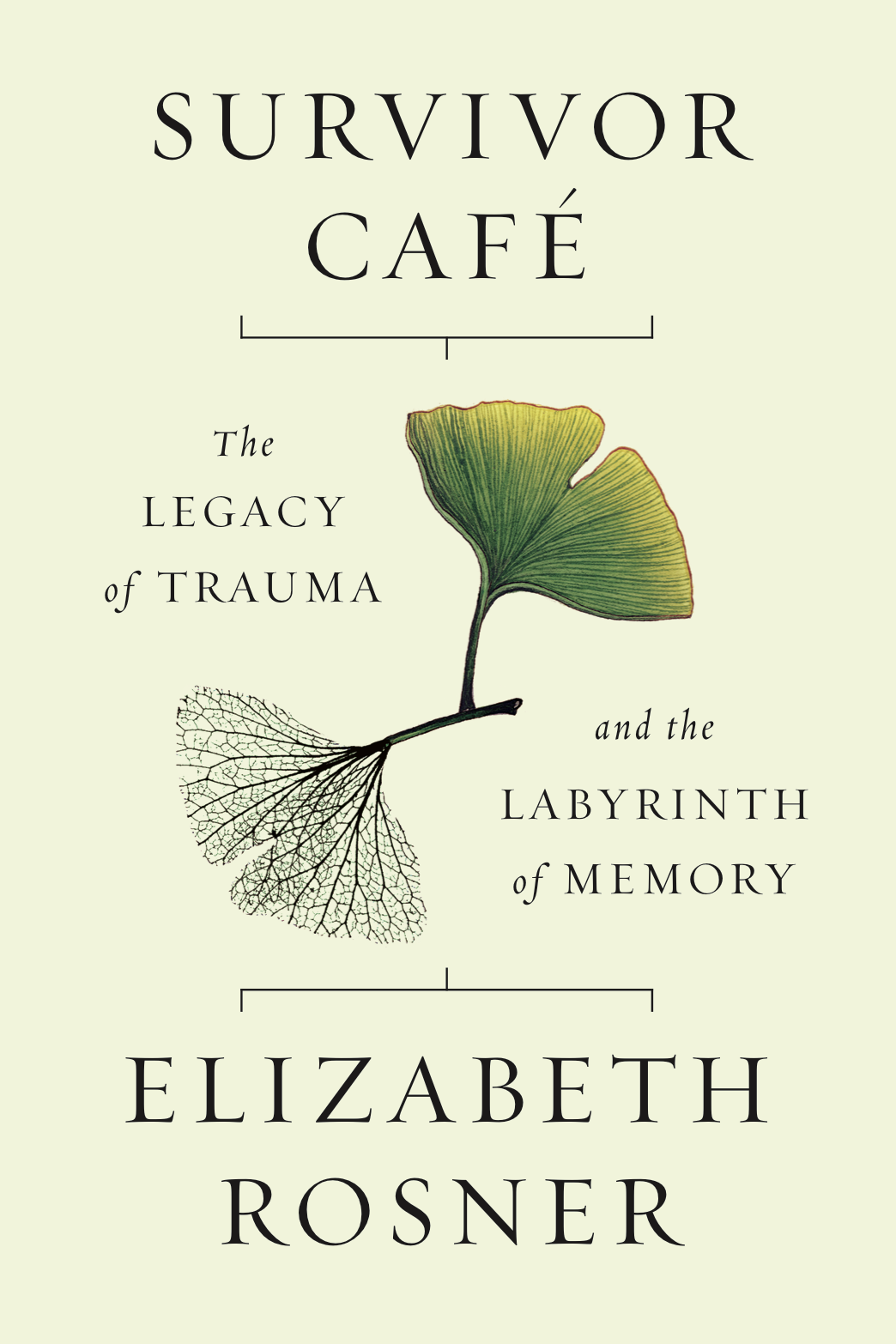“Mixing the personal with the historical and the literary with the scholarly, Rosner achieves a breathtaking overview of events as varied as the Holocaust, the Vietnam War, the Rwandan genocide, and Japanese American internment. Her impressive, highly readable Survivor Café takes on important issues of atrocity, trauma, and memory, rendering them all with such great clarity and intimacy that the reader will not soon forget them, or this powerful book.”
~ Viet Thanh Nguyen, Pulitzer-prize winning author of The Sympathizer
Please visit my LINKS page and/or NEWS page for latest reviews and excerpts.
Finalist for National Jewish Book Award in Contemporary Jewish Life & Practice
Overview
As survivors of many of 20th century’s most monumental events—the Holocaust, Hiroshima, the Killing Fields—begin to pass away, Survivor Café addresses urgent questions: How do we carry those stories forward? How do we, collectively, ensure that the horrors of the past are not forgotten?
Rosner organizes her book around three trips with her father to Buchenwald concentration camp, from 1983 to 1995 to 2015; each journey an experience in which personal history confronts both commemoration and memorialization. She explores the echoes of similar legacies among descendants of African American slaves; descendants of Cambodian survivors of the Killing Fields; descendants of survivors of the bombing of Hiroshima and Nagasaki; and the effects of 9/11 on the general population. Examining current brain research, Rosner depicts the efforts to understand the intergenerational inheritance of trauma, as well as the intricacies of remembrance in the aftermath of atrocity. Survivor Café becomes a lens for numerous constructs of memory—from museums and commemorative sites to national reconciliation projects to small-group cross-cultural encounters.
Beyond preserving the firsthand testimonies of participants and witnesses, individuals and societies must continually take responsibility for learning the painful lessons of the past in order to offer hope for the future. Survivor Café offers a clear-eyed sense of the enormity of our 21st century human inheritance—not only among direct descendants of the Holocaust but also in the shape of our collective responsibility to learn from tragedy, and to keep the ever-changing conversations alive between the past and the present.
Praise
“Using the Holocaust as a focal point, Survivor Café renders a profound and unflinching portrait of trauma and the memory of trauma, the consequences of inhumanity, atrocities that do not end with one generation but are inherited as nightmare, memory, and affliction, passed on to the next generation and the next and the next. With vivid stories and brilliant insights, this book must certainly be required reading for those who want to understand not just our collective history but the present moment.”—Susan Griffin, award-winning author of A Chorus of Stones
“A thoughtful, probing meditation on the fragility of memory and the indelible inheritance of pain.” —Kirkus Reviews
“In this haunting and poetic book, Elizabeth Rosner summons her readers to a deep and abiding commemoration of genocide. The daughter of Holocaust survivors, Rosner describes scientific evidence that deep trauma persists not only emotionally but also physically through generations. This is an inspired, illuminated book—the fruit of hard experience and deep study. I salute Elizabeth Rosner’s Survivor Café, a work of wisdom and, ultimately, hope.” —Elizabeth Farnsworth, author of A Train Through Time
“In Survivor Café, Elizabeth Rosner brilliantly captures both the enormity of war and its enduring aftershocks—the devastating legacies for victims, perpetrators, and societies who suffer through and beyond it. A mixture of history, personal narrative, and research, the book expertly documents how atrocities are passed down through generations and how we may find ways to contain this pernicious inheritance. Survivor Café is a vital, living document that proves the end of war is far from the end of the battle.” —Andrew Carroll, editor of the New York Times bestsellers War Letters and Behind the Lines
“A staggering work of intellectual vigor and raw emotion, Survivor Café mines the darkest recesses of our collective past, excavating both the hate and hope of human history. Rosner’s intimate handling of intergenerational trauma, as well as the need to acknowledge and transcend it, reminds us of the power and mercy of stories. In our current age of hyper-immediacy, with increasingly short news cycles and even shorter memories, Rosner’s work reminds us of our sacred duty to carry these stories forward like a lantern in the dark.” —Aline Ohanesian, author of Orhan’s Inheritance
“Elizabeth Rosner explores how trauma infiltrates minds and bodies and language. In lyrical, luminous prose, she takes on the obligation to remember lives lost. Genocide, war, nuclear bombs, lynching — Rosner does not turn away from unceasing violence and its aftermath. Urgent and necessary, this book offers brave witness to the world we have made and must repair.” —Sarah Sentilles, author of Draw Your Weapons
“Novelist Rosner (Electric City) shines an unblinking light on the most horrific of 20th-century crimes and asks, what is the intergenerational legacy of trauma?…She considers art, anniversaries, memorials, and psychotherapy, but the most powerful technique she finds for dealing with trauma is simply telling the story behind it…[T]hemes of memory, language, and the bodily imprint of trauma are powerful, as are Rosner’s accounts of revisiting Buchenwald with her father… Rosner’s conclusions—that powerful suffering must be communicated before healing can occur and that the most profound of human atrocities must be acknowledged so that their like does not happen again—open the door to understanding and, optimistically, show a path to peace.”—Publishers Weekly
“Elizabeth Rosner’s Survivor Café is about how we inherit, not just our histories, but the complexities of how we survive them. With the heart of a poet, Rosner unpeels the layers of trauma in a way that will stay with you long after you read the last page.” —Emily Rapp Black, author of The Still Point of the Turning World
